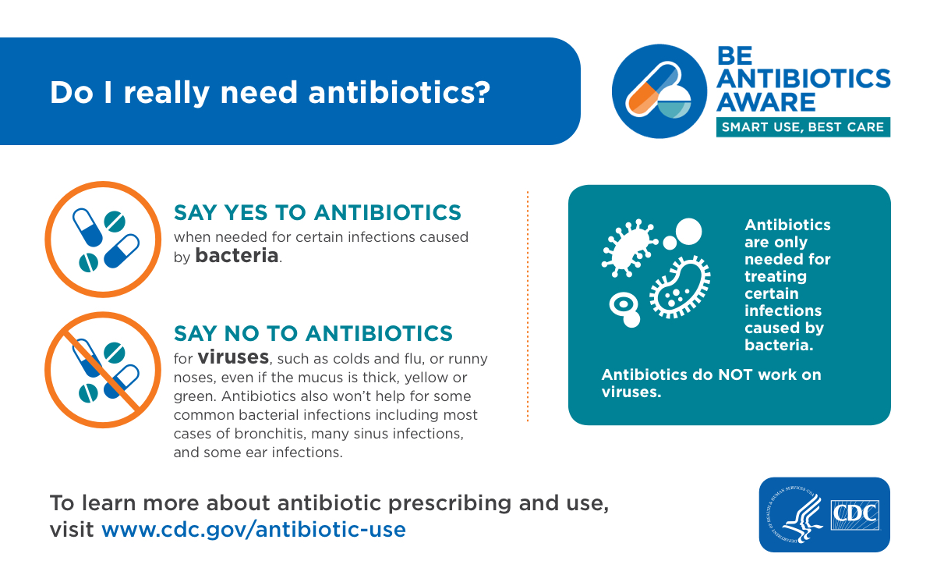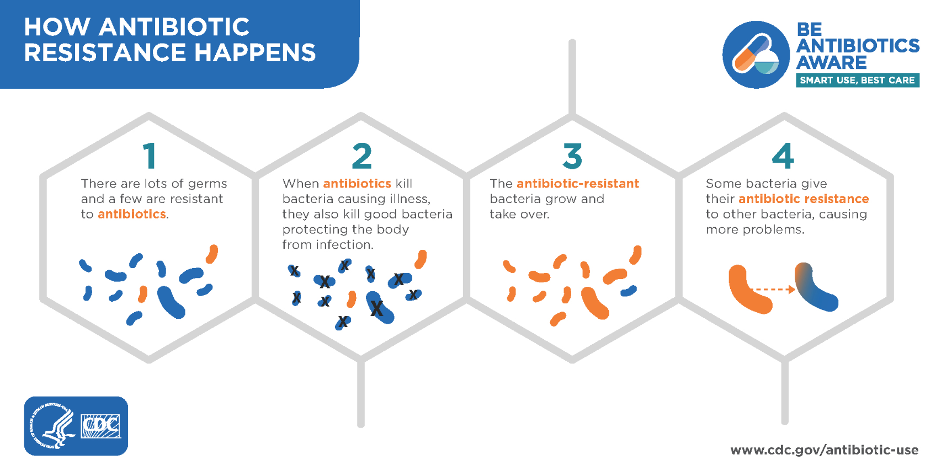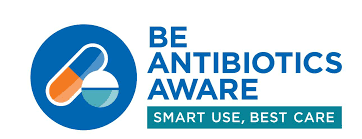Be Antibiotics Aware
Antibiotics are life-saving drugs and are often prescribed. When antibiotics are needed, their benefits outweigh the risk of side effects and antibiotic resistance. When they are not needed, the side effects could cause harm.
What do antibiotics treat?
Antibiotics are only needed for treating certain infections caused by bacteria.
Antibiotics do not work on viruses or some common bacterial infections like some cases of bronchitis, sinus infections, and ear infections.

What are the potential side effects of antibiotics?
Common side effects include rash, dizziness, nausea, diarrhea, and yeast infections.
More series side effects can include life threatening allergic reactions and infections with antibiotic-resistant bacteria like c difficile.
Why can taking antibiotics lead to antibiotic resistance?
Anytime you take antibiotics, they can cause side effects and contribute to the development of antibiotic resistance.
According to the CDC, antibiotic resistance is one of the most urgent threats to the public’s health.

Always Remember:
- Antibiotic resistance does not mean the body is becoming resistant to antibiotics. It means that the bacteria are developing the ability to defeat antibiotics designed to kill them.
- When bacteria become resistant, antibiotics cannot fight them, and the bacteria multiply.
- Some resistant bacteria can be harder to treat and can spread to other patients or residents.
Talk to your provider if you have questions.
- How long does my loved one need this antibiotic?
- What infections will this antibiotic treat? Do you know that my loved one has that infection?
- How will we know that the antibiotic is working for the infection?
- What are the possible side effects from this antibiotic?



Be Antibiotics Aware
Clinical Resources